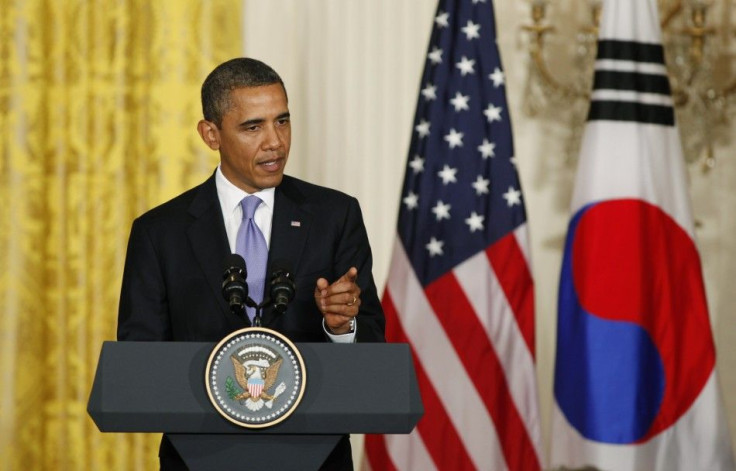The G20 and Obama’s National Export Initiative
OPINION

It is interesting how the rest of the G20 are worried about resolving issues, mainly the Eurozone and the Greek issue, while the White House is worried about making sure everybody knows we are the leader. Why does it matter now? Is it even true?
In the past, the US led by example. Our economy flourished -- compared to most of the countries. We had jobs, our standard of living was the highest, we were a nation everybody looked up to, at times with a certain jealousy, and at other times as a bit aloof, full of it and condescending. But we had it all. There was no need for the White House to come out and educate the world who is the leader.
Imagine Steve Jobs’ announcement, coming out in a conference and saying we are the leader in the industry. Apple is the industry’s leader and everybody knows that so there’s certainly no reason to announce it. Haven’t you ever met people who need to feel important and let everybody know how important they are? You demonstrate it through action. Not words! Let me break the news to you: When you are a leader, everybody knows you are and there is no need to repeat/announce it. Let’s stop worrying about titles and start doing the work that got us there before.
Action Items
President Obama said the European Union has taken some important steps to address its debt problems, and he hopes the heads of the world's leading developed and developing countries can flesh out details of a comprehensive strategy to resolve the crisis.
So let’s take a step back home, to the U.S., and flesh out the national export initiative, since this is about the only way the U.S. can create real jobs. Stimulus is great to patch up the wounds, but it doesn’t create a larger pool of income and jobs for the long run. If you don’t agree with this statement, look at the facts: it didn’t.
1. For starters, let’s correct and change the title of this initiative, and instead of U.S. export initiative let’s call it the U.S. global business initiative. Trade has to be a two way transaction in order to be successful.
2. SBA programs, EXIM bank, gold key programs, and many other tactical mechanisms that were put in place are great tools, assuming the company is knowledgeable as to what it should do and how to execute it. These programs are great if you have a buyer in another country. Then you can march right into the EXIM bank, and they can maybe help you figure it out. It all depends on the country’s risk rating and so many other issues. But how do you find your target customer? What do you need to know to get in the game? Business people need to learn that instead of gazing with fear at the global expansion process, focus with excitement and starry eyes at the opportunities and, most importantly, plan.
3. How about U.S. companies that are considering bringing manufacturing jobs back into the U.S.? How do we, internally and domestically, develop the right tools and resources so we can become more competitive? We have one of the highest corporate taxes in the world. Also, there is a cry to stop sending manufacturing jobs overseas, but our workforce isn’t trained. How about a nationwide initiative such as the Manufacturing Career Internship Program that aims to:
Provide a meaningful work experience in the manufacturing sector leading to placement of interns into career jobs with manufacturers in the region of into training or educational programs leading to manufacturing careers. Have youths learn about opportunities and career paths in manufacturing. Understand the training needed to achieve success in the industry. Create a pipeline of qualified employees for manufacturers.
4. Let’s start teaching students about the opportunities in other countries so when the graduates and MBA’s go out into the world they have an idea that things are different and the U.S. way isn’t the only way. Look to economies that are handling the economic crisis much better. We are not always right and we need to learn from other countries that have improved on the U.S. model. Look at the global competitiveness report for 2010-2011: we are no. 4! We are no. 4 in the Ease of Doing Business Index, and the same in Innovation, and no. 22 in the Global Transparency Index.
It all starts with commitment from the leadership that needs to come up with a transparent, coherent and sustainable plan. Instead of feeling panic and fear, they should look at the global market as an opportunity. Let’s stop peeking through the keyhole, open the door and step outside. Engage, play and succeed.
Mona Pearl is a global strategic business development expert as well as the founder and COO of Beyond A Strategy Inc.
© Copyright IBTimes 2024. All rights reserved.











